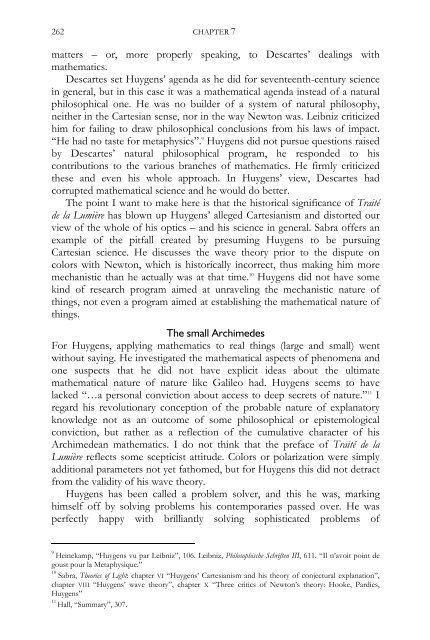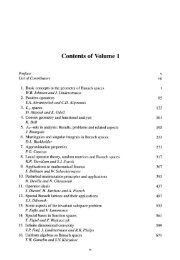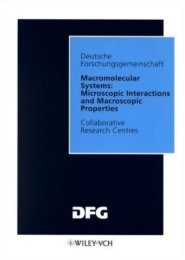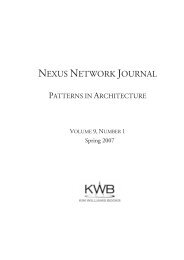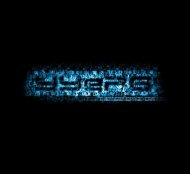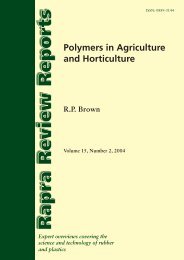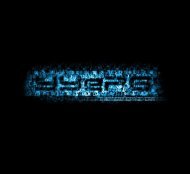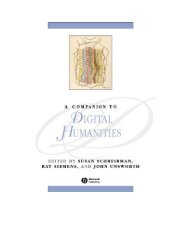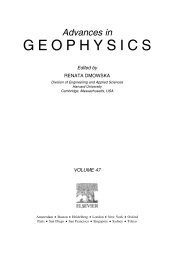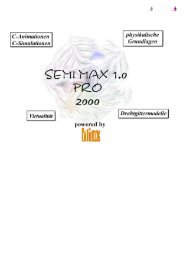Lenses and Waves
Lenses and Waves
Lenses and Waves
Create successful ePaper yourself
Turn your PDF publications into a flip-book with our unique Google optimized e-Paper software.
262 CHAPTER 7<br />
matters – or, more properly speaking, to Descartes’ dealings with<br />
mathematics.<br />
Descartes set Huygens’ agenda as he did for seventeenth-century science<br />
in general, but in this case it was a mathematical agenda instead of a natural<br />
philosophical one. He was no builder of a system of natural philosophy,<br />
neither in the Cartesian sense, nor in the way Newton was. Leibniz criticized<br />
him for failing to draw philosophical conclusions from his laws of impact.<br />
“He had no taste for metaphysics”. 9 Huygens did not pursue questions raised<br />
by Descartes’ natural philosophical program, he responded to his<br />
contributions to the various branches of mathematics. He firmly criticized<br />
these <strong>and</strong> even his whole approach. In Huygens’ view, Descartes had<br />
corrupted mathematical science <strong>and</strong> he would do better.<br />
The point I want to make here is that the historical significance of Traité<br />
de la Lumière has blown up Huygens’ alleged Cartesianism <strong>and</strong> distorted our<br />
view of the whole of his optics – <strong>and</strong> his science in general. Sabra offers an<br />
example of the pitfall created by presuming Huygens to be pursuing<br />
Cartesian science. He discusses the wave theory prior to the dispute on<br />
colors with Newton, which is historically incorrect, thus making him more<br />
mechanistic than he actually was at that time. 10 Huygens did not have some<br />
kind of research program aimed at unraveling the mechanistic nature of<br />
things, not even a program aimed at establishing the mathematical nature of<br />
things.<br />
The small Archimedes<br />
For Huygens, applying mathematics to real things (large <strong>and</strong> small) went<br />
without saying. He investigated the mathematical aspects of phenomena <strong>and</strong><br />
one suspects that he did not have explicit ideas about the ultimate<br />
mathematical nature of nature like Galileo had. Huygens seems to have<br />
lacked “…a personal conviction about access to deep secrets of nature.” 11 I<br />
regard his revolutionary conception of the probable nature of explanatory<br />
knowledge not as an outcome of some philosophical or epistemological<br />
conviction, but rather as a reflection of the cumulative character of his<br />
Archimedean mathematics. I do not think that the preface of Traité de la<br />
Lumière reflects some scepticist attitude. Colors or polarization were simply<br />
additional parameters not yet fathomed, but for Huygens this did not detract<br />
from the validity of his wave theory.<br />
Huygens has been called a problem solver, <strong>and</strong> this he was, marking<br />
himself off by solving problems his contemporaries passed over. He was<br />
perfectly happy with brilliantly solving sophisticated problems of<br />
9<br />
Heinekamp, “Huygens vu par Leibniz”, 106. Leibniz, Philosophische Schriften III, 611. “Il n’avoit point de<br />
goust pour la Metaphysique.”<br />
10<br />
Sabra, Theories of Light: chapter VI “Huygens’ Cartesianism <strong>and</strong> his theory of conjectural explanation”,<br />
chapter VIII “Huygens’ wave theory”, chapter X “Three critics of Newton’s theory: Hooke, Pardies,<br />
Huygens”<br />
11<br />
Hall, “Summary”, 307.


